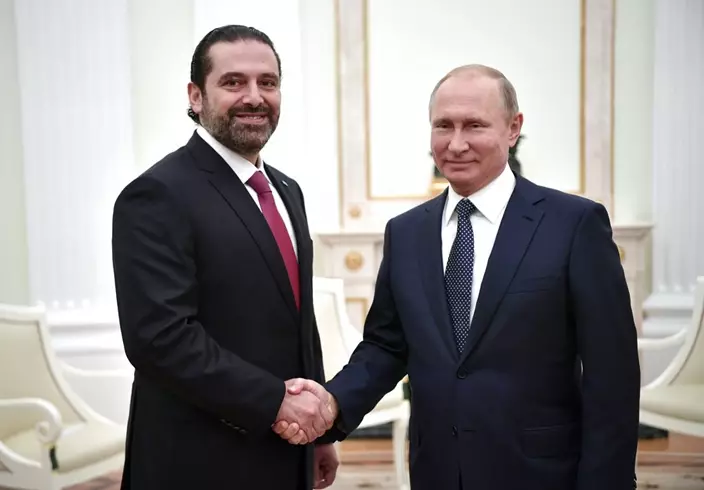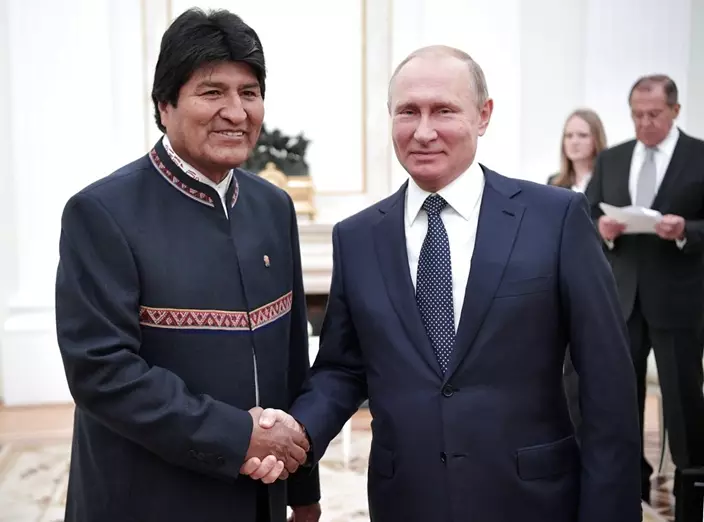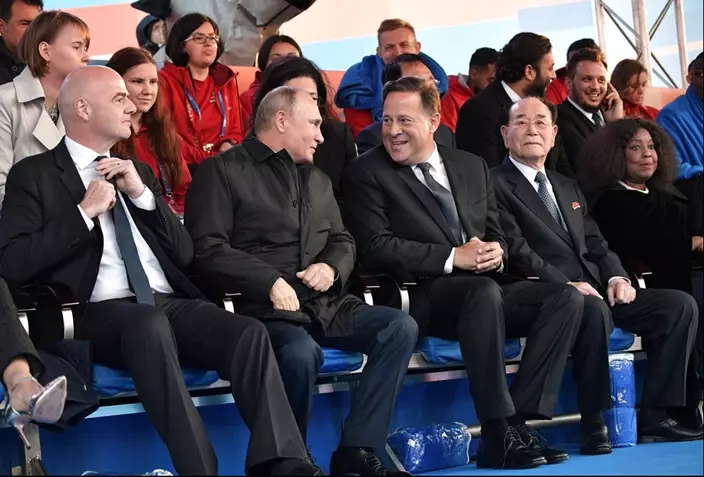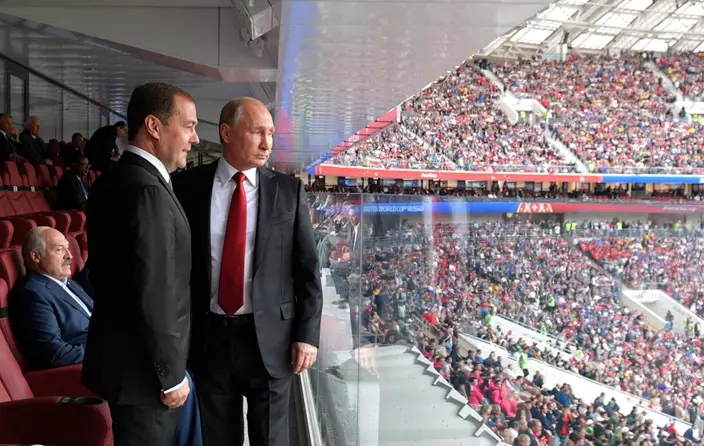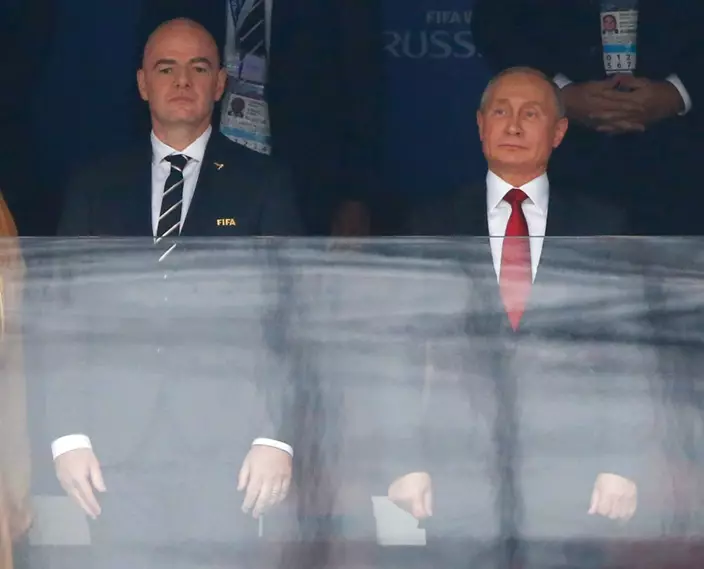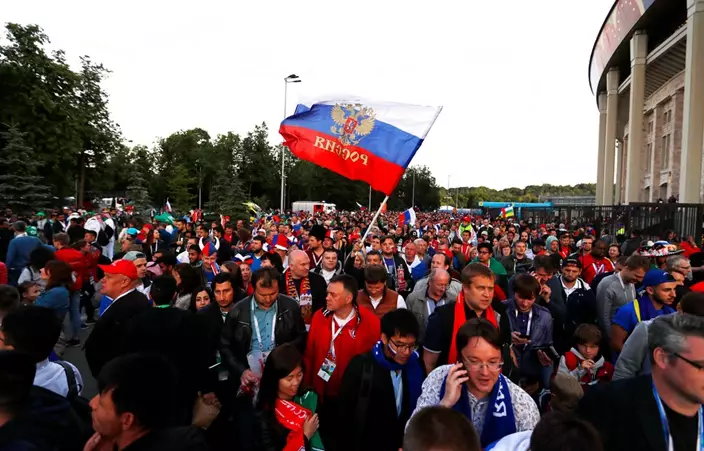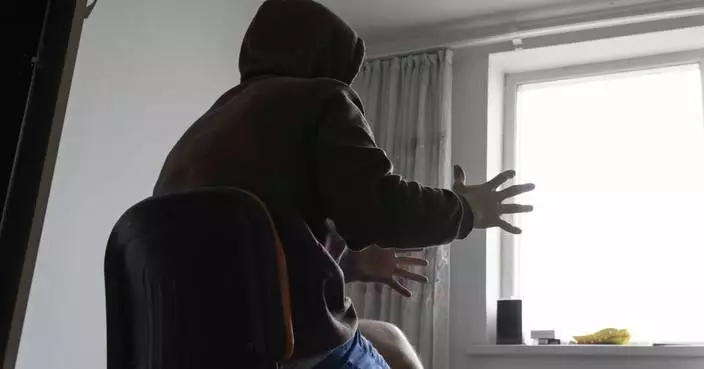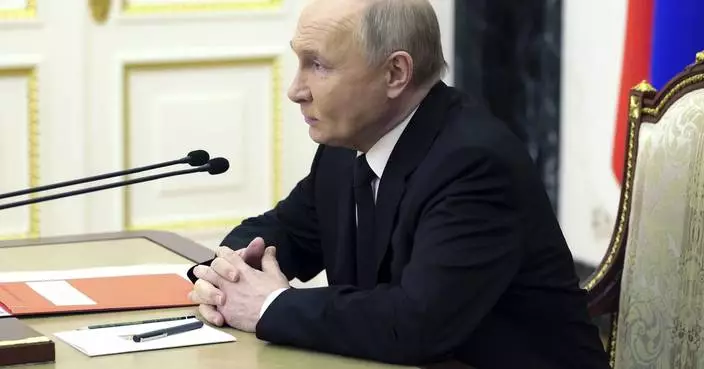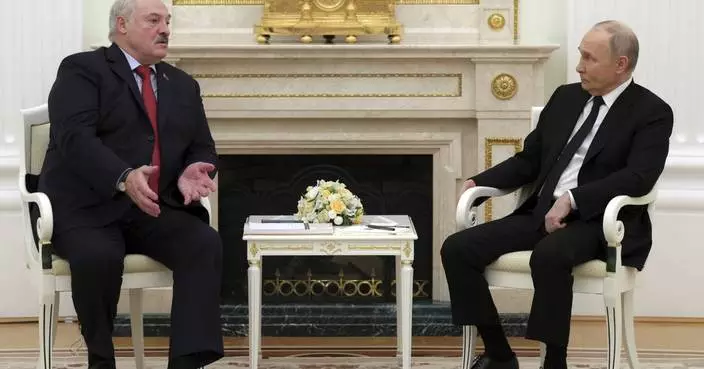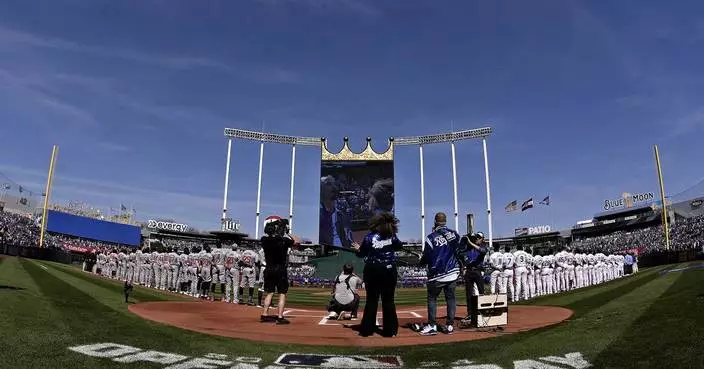ASTANA, Kazakhstan (AP) — If the choice was death or a bullet to the leg, Yevgeny would take the bullet. A decorated hero of Russia’s war in Ukraine, Yevgeny told his friend and fellow soldier to please aim carefully and avoid bone. The tourniquets were ready.
The pain that followed was the price Yevgeny paid for a new chance at life. Like thousands of other Russian soldiers, he deserted the army.
“I joke that I gave birth to myself,” he said. “When a woman gives birth to a child, she experiences very intense pain and gives new life. I gave myself life after going through very intense pain.”
Yevgeny made it out of the trenches. But the new life he found is not what he had hoped for.
The Associated Press spoke with five officers and one soldier who deserted the Russian military. All have criminal cases against them in Russia, where they face 10 years or more in prison. Each is waiting for a welcome from the West that has never arrived. Instead, all but one live in hiding.
For Western nations grappling with Russia’s vast and growing diaspora, Russian soldiers present particular concern: Are they spies? War criminals? Or heroes?
Overall asylum claims from Russian citizens have surged since the full-scale invasion, but few are winning protection. Policymakers remain divided over whether to consider Russians in exile as potential assets or risks to national security.
Andrius Kubilius, a former prime minister of Lithuania now serving in the European Parliament, argues that cultivating Russians who oppose Vladimir Putin is in the strategic self-interest of the West. Fewer Russian soldiers at the front, he added, means a weaker army.
“Not to believe in Russian democracy is a mistake,” Kubilius said. “To say that all Russians are guilty is a mistake.”
All but one of the soldiers spoke with AP on condition of anonymity, fearing deportation and persecution of themselves and their families. The AP reviewed legal documents, including criminal case files, Russian public records and military identification papers, as well as photos and videos to verify their stories, but it was impossible to independently corroborate every detail.
Independent Russian media outlet Mediazona has documented more than 7,300 cases in Russian courts against AWOL soldiers since September 2022; cases of desertion, the harshest charge, leapt sixfold last year.
Record numbers of people seeking to desert – more than 500 in the first two months of this year – are contacting Idite Lesom, or “Get Lost,” a group run by Russian activists in the Republic of Georgia. Last spring, just 3% of requests for help came from soldiers seeking to leave; in January, more than a third did, according to the group’s head, Grigory Sverdlin. The numbers of known deserters may be small compared to Russia's overall troop strength, but they are an indicator of morale.
“Obviously, Russian propaganda is trying to sell us a story that all Russia supports Putin and his war," Sverdlin said. "But that’s not true.”
The question now is, where can they go?
German officials have said that Russians fleeing military service can seek protection, and a French court last summer ruled that Russians who refuse to fight can claim refugee status. In practice, however, it’s proven difficult for deserters, most of whom have passports that only allow travel within a handful of former Soviet states, to get asylum, lawyers, activists and deserters say.
Fewer than 300 Russians got refugee status in the U.S. in fiscal year 2022. Customs and Border Patrol officials encountered more than 57,000 Russians at U.S. borders in fiscal year 2023, up from around 13,000 in fiscal year 2021.
In France, asylum requests rose more than 50% between 2022 and 2023, to a total of around 3,400 people, according to the French office that handles the requests. And last year, Germany got 7,663 first-time asylum applications from Russian citizens, up from 2,851 in 2022, Germany’s Interior Ministry told AP in an email. None of the data specifies how many were soldiers.
As they count the days until their legal right to stay in Kazakhstan ends, Yevgeny – and the others – have watched other deserters get seized by Russian forces in Armenia, deported from Kazakhstan and turn up dead, riddled with bullets, in Spain.
“There is no mechanism for Russians who do not want to fight, deserters, to get to a safe place,” Yevgeny said. He urges Western policymakers to reconsider. “After all, it’s much cheaper economically to allow a person into your country -- a healthy young man who can work -- than to supply Ukraine with weapons.”
Sitting in his spartan room in Astana, Kazakhstan, Yevgeny rummaged through a cardboard box that holds the things he thought to save.
“It’s like a woman’s handbag, there’s so much stuff,” he muttered, poking around real and fake passports, a letter with hearts on it, blister packs of pills.
He can’t find his military medals. He has the certificates, though, commemorating his service in Syria and Ukraine.
Yevgeny seems suddenly ashamed. “I don’t care about them,” he said, shoving everything back in the box.
The son of postal workers, Yevgeny went to military school mostly because it was free. He did 41 parachute jumps, and learned to ride horses, dive, shoot and handle explosives. The cost of his education would come after graduation: five years of mandatory military service.
The night of Feb. 23, 2022, Yevgeny and his unit barely slept. Their tanks, hulking and dark, cast long shadows on a thin layer of snow beside the railroad tracks that would carry them toward Ukraine. Yevgeny was too drunk with fatigue to think much about what would happen next.
On Yevgeny’s second day at war, an officer leaned against his machine gun and shot off his own finger, he said. Later, a guy fell asleep under a military vehicle and died when it drove over him. People got lost and never came back.
In the chaos, around 10 men in his unit were accidentally killed with guns or grenades. One soldier shot another square in the chest. What were they doing, Yevgeny wondered, testing their bulletproof vests? None of it made sense in a world where life mattered. But Yevgeny wasn’t in that world anymore.
The deeper Yevgeny moved into Ukraine, the uglier things got.
“We didn’t want to kill anyone, but we also wanted to live,” explained Yevgeny, a senior lieutenant who oversaw a platoon of around 15 men. “The locals would come in civilian cars and shoot at our military. What would you do?”
He said that Ukrainian prisoners of war were executed because the Russians couldn’t get them back to Russia and didn’t want to build detention centers.
“Special people were chosen for this, because a lot of others refused,” he said. “People with a special, so to speak, psyche were appointed executioners.”
There are things Yevgeny can’t forget: A 14-year-old Ukrainian boy who seemed to be making Molotov cocktails and was executed. A 24-year-old Ukrainian woman caught with compromising information on her phone raped by two Russian soldiers.
Yevgeny was within breathing distance of Kyiv when Moscow ordered a retreat. In a single day in April 2022, around seventy people from his brigade died in an ambush, he said. The Ukrainian military released a video of the encounter with the retreating column.
Pop, pop, pop go the fireballs. Little flags bob above the tanks, giving it the feel of a video game. Shells crash a bit off to the left. Then, a hit. The video cuts to a magnified image of a Russian tank pluming black smoke, two lifeless bodies curled beside it.
“Very cool,” wrote someone in the comments.
“The best sight in my life is to see how the Russians die,” wrote another.
Yevgeny was in that column. He knows men who are dying in those balls of fire. His face is flat. He doesn’t want to see it again.
“Many of my friends have died. And these were really good guys who didn’t want to fight,” he said. “But there was no way out for them.”
He is crying.
If he could, Yevgeny would go back to 2013, the year he entered military school. He would stand sentinel at the gates of his school and tell all the boys go home, stay away, this place is not what it seems.
He wants them to understand three words: “You will die.”
It took Yevgeny less than three months at war to decide to get himself shot in the leg.
“You can only leave wounded or dead,” Yevgeny explained. “No one wants to leave dead.”
He made a pact with three other soldiers. They called it their Plan B. Yevgeny would take the first bullet, then the comms guy, then the sniper. The machine gunner said he didn’t want to leave Ukraine without his brother, who was also fighting, but he’d stand by their story.
One chill May morning, as they trudged through even columns of pine trees on their way to retrieve a drone that had landed in Ukrainian territory, Yevgeny and his friends decided it was time for Plan B. They’d already lost one man in that area and now felt like they were on a suicide mission.
When the sniper shot Yevgeny, the pain was like a strong man hammering a 9 mm metal bar into his flesh. Then the comms guy took a bullet to his thigh. After seeing the two of them crumple and scowl, the third man chickened out.
Blood kept gushing, despite the tourniquet, and Yevgeny was shocked to discover he couldn’t walk. His friends dragged him 300 meters back through the woods. He was given sweet tea and evacuated that same evening.
Yevgeny spent months in rehabilitation and figured he could ride out his injury until his contract expired in June 2023. But after Putin’s announcement of partial mobilization in September 2022, it no longer mattered what his contract said. Soldiers like him were now obliged to serve until the end of the war.
He knew he had to leave. He made it to Kazakhstan in early 2023, with the help of Idite Lesom. Russian authorities filed a criminal case against him. His relatives back in Russia were questioned, his apartment there searched.
Since then, Yevgeny has been doing his best to disappear. He found a place in Astana in an apartment that stank of cat. They were four men with only three cups, three spoons and three chairs to go around. They boiled water with an electric coil in a glass jar because no one wanted to splurge for a kettle.
He worked for a few weeks skittering around Astana on an old motorcycle delivering food. But his paychecks never arrived, possibly because his SIM card and bank account were in different people’s names.
He doesn’t know what he’ll do when his savings run out. He said he's applied for asylum in France, Germany and the United States – obviously the best place to hide from Russia, he said. He'd like to serve in a U.N. mission somewhere, but it's hard for him to conceive of a path from here to there.
He wakes at 10 o’clock, steps out of the shower into another molten, formless day. That night, he will comb his hair and go out to a bar with other deserters, to pass a few sparkling hours as a normal guy.
At the bar, someone remembered that it was the one-year anniversary of Russia’s September 2022 mobilization. Putin drafted 300,000 troops to fight in Ukraine. Tens of thousands of them are now dead.
The table went quiet. Yevgeny searched for a word that meant the opposite of evil so they could drink to it.
In the end, they raised their glasses to virtue, then to peace.
Within hours of Putin’s September 2022 mobilization decree, threatening messages started pinging in on Farhad Ziganshin’s phone. A small man with a big voice, Farhad had abandoned a career in music for the military to please his dad. He’d tried to resign from the armed forces, but the military school where he taught rejected his application, he said.
Panicked, he piled into the family Chevrolet with his mother, sister, dog and aunt and took off for the Kazakh border near midnight. They’d try to make it look like a fun family vacation. The roads were jammed with other Russians fleeing Putin’s draft.
“Hurrah!” shouted Farhad, pumping his fists in the air, as they left Russia.
Farhad landed a job at a burger joint near the border, then followed a friend of a friend to Almaty, Kazakhstan’s largest city, where he’d been promised work as a singer. He ended up working in a banquet hall, sleeping on a vast, golden bed in a newlywed suite and eating as much leftover food as he wanted.
Life was good, but uncertain. Kazakhstan was playing a delicate game, trying to assuage Russia without distancing allies in Europe. In December 2022, Kazakhstan deported a Russian intelligence officer, Mikhail Zhilin, who had deserted. In March 2023, a Russian court sentenced Zhilin to six and a half years in prison.
That same month, Farhad decided to move to Armenia, thinking it was probably safer. But he was blocked from boarding his flight. “Are you on the wanted list?” a border agent asked as he flicked through Farhad’s passport. Farhad went pale. Cold sweat prickled over his body.
He was led to a room for questioning. A man in civilian clothes sat across from him.
“You are my Muslim brother,” he told Farhad. “I’m also against the war. Tell me everything.”
Farhad confessed.
Farhad tried to brace himself for what was to come. He slipped his toothbrush, toothpaste, socks, slippers, snacks and a book – Dostoevsky’s “Crime and Punishment” — into a transparent bag. His cell at the detention center had a metal door with a small window and slot for food, a security camera and a hole in the floor for a toilet.
Farhad stared at the ceiling all night, his panic mounting: How am I going to live here? Will I be beaten or raped? I’d kill myself first.
The morning of his third day in detention, three huge bags arrived for Farhad, packed with food, clothes and cigarettes from local human rights activists. “I lay down and thought that’s the end,” Farhad said. “Kaput.” Why would he need all this stuff if he weren’t in for a long incarceration?
Two hours later, a police officer appeared. “Take your things and get out,” he ordered.
Farhad was free.
Farhad’s lawyer told AP he was released because under the Kazakh criminal code, as well as multilateral agreements with Russia, suspects accused of military crimes can’t be extradited. Farhad was safe, at least for the moment.
“We don’t know what tomorrow will bring,” said his lawyer, Artur Alkhastov, who works with the Kazakhstan International Bureau for Human Rights and Rule of Law in Astana. “In Kazakhstan, politics is higher than the law. . . Everything can change.”
In July, independent Russia media reported that France had rejected Farhad’s application for asylum. What actually happened was that Farhad’s application for a travel permit to France to apply for asylum had been denied, Alkhastov said.
Without an international passport, Farhad was stuck in Kazakhstan. Moreover, the publicity raised fears that Russian authorities would take fresh interest in his case. Farhad moved from Almaty to Astana, the capital, to lower his profile.
“It’s not safe to stay in Kazakhstan,” he said. “I just try to lead a normal life, without violating the laws of Kazakhstan, without being too visible, without appearing anywhere. We have a proverb: Be quieter than water and lower than grass.”
He changes his SIM card every few months, doesn’t live at his registered address and avoids employers who ask too many questions. After six weeks, he ran out of money and moved in with another Russian deserter, Yevgeny. His bed was a pile of coats and sweaters on the floor. It was impossible to sleep. His back was killing him.
He thought of the life he’d left behind in Russia. “In Kazan, I had a completely different life. I had my own apartment, I had a job there, I earned money, I had staff under my command,” he said. “Here I am living sleeping on coats, eating I don’t know what. And without any money in my pocket. It’s very depressing,” Online, people call him a coward and traitor and say he should be killed.
Farhad got a job at a real estate startup that didn’t ask for documents. Every morning, he sang Whitney Houston’s “I Have Nothing” to his co-workers.
After work, Farhad liked to walk around Astana, singing deep slow songs to himself to fill the darkening hours. He dreamed of starting a family but couldn’t afford to take a woman out to the movies. “I can’t fall in love with someone and have someone fall in love with me,” he said. “So I just walk around and sing songs.”
But he wanted to believe that he had made a worthy choice.
“I realized that I didn't want to serve in this kind of Russian army that destroys cities, kills civilians, and forcibly appropriates foreign land and territory,” he said. “If perhaps watching, listening to my story could bring even one person to reason, I would have made a certain contribution.”
Six months later, the real estate business has collapsed and Farhad is trying to sell flooring instead. He moved into an apartment of his own, but keeps missing rent payments. He’s been warned that his legal right to stay in Kazakhstan is coming to an end. He doesn’t know what to do next.
Sparrow knew from the start that money could mean the difference between life and death. The month before he was born, his father was killed in a gambling dispute over money. His mother raised him, along with his brother and sister, alone, working as a cook in an orphanage in a tiny village.
Later, he moved farther north, to work in a diamond-mining town not far from the Arctic Circle.
The company Sparrow worked for owned more than diamonds. They effectively owned the town, sponsoring its theater, schools, hospital, sports complex and apartment blocks. As it turned out, they also owned Sparrow.
Sparrow finished his shift the afternoon of Friday, Sept. 23, 2022, and was cleaning his Bobcat when his boss came by and told him to report immediately to human resources. They took his passport and military ID and locked them in a safe.
“They said, ‘You're fired,’” Sparrow recalled. “You have one hour to get to the military recruitment point. If you don’t, you’ll have a criminal case against you.”
Sparrow obeyed. At 6 a.m. the next morning, he and hundreds of other conscripts boarded a heavy old plane bound for a military base in the regional capital.
The thought of war did not cross Sparrow’s mind. All he could think about was his job. Sparrow is delicately composed, with a pale, Asian face, ink-dark eyes and bone-china cheeks. Unable to finish university, he worked hard at laying road. Winters, he endured temperatures so extreme they could crack a backhoe. Why had they fired him?
When he arrived, the military base was chaos. Some 6,000 people were crammed into the barracks, he calculated, and no one was giving orders. Men spilled over each other, hiving off into small groups to drink. He couldn’t find a free bed, so he dropped his bag in a corner and curled up on the floor.
The next day, he found his way to an information stand to figure out who was in charge. But instead of a list of personnel, he found photographs of dead people and an exhortation to kill Ukrainian soldiers. “I saw this photo – what is all this?” he thought. “I’m not going anywhere to kill people – never!”
Sparrow pulled his commander aside to try to find a way to avoid going where he was being sent. He would serve in a different way. He could pay.
The commander was not interested in bribes and told him that if he didn’t fight with the Russian armed forces, he’d end up with a private military company, like Yevgeny Prigozhin’s then-powerful Wagner Group. “You still have just one path,” his commander told him. “Write a refusal, you will go to jail, and we know where you will end up, at PMC Wagner.”
He was 30 years old. He called his mother for help.
Sparrow’s guts couldn’t take it. He ran to the bathroom. He paced in anxious circles. Then ran to the bathroom again. And again.
“What’s wrong with you?” his commander demanded.
“I just have some stomach problems,” Sparrow said.
While the commander was at lunch, Sparrow grabbed his ID, telephone and civilian clothes and headed for a hole in the wall. His mother was waiting on the other side.
The next morning, they boarded the first flight out of town. Forty hours later, Sparrow was in Kazakhstan.
Astana felt fresh and warm. He realized he’d been cold his entire life.
“I am free,” he told himself.
Freedom for Sparrow actually meant a bigger cage.
Two weeks after he fled, Russian authorities opened a criminal case against him. Russian media reported on his case, and Sparrow felt the publicity only increased the size of the target on his back. The charges against him were soon upgraded under a tough new clause in Russia’s criminal code. Now he faces up to 15 years in prison if he gets sent back to Russia.
Security agents interrogated his mother back in Russia. Before he ditched his Russian SIM, he used to get calls from Russian police who said they knew where he was. In October, a man claiming to be a Kazakh policeman started calling him to set up a meeting. He said he’d wait for a summons. None ever came.
Sparrow is afraid of the background checks that come with permanent employment. Instead, he picks up occasional jobs collecting trash or hauling equipment at construction sites.
He was going to bed at 4 a.m. and waking at noon. He couldn’t even get back to Russia to bury his grandfather.
Sparrow’s eyes went red with tears.
“I don’t want anything in life. I have no interest in my own affairs,” he said. “Sometimes I don’t understand myself. I just sit all day on the Internet, on YouTube, and read news, news, news of what’s going on in Ukraine, and that’s it.”
He doesn’t know the status of his own asylum applications. Without a foreign passport, how could he leave Kazakhstan anyway? Every time he dared to believe something good might happen to him, it hasn’t. Why try?
Outside his bare apartment, he could hear the cries of children who are not his, the thwack of a ball from a game he is not playing, the voices of men speaking to friends he does not have.
“There are moments I regret, but I did the right thing,” he said. “I’d rather sit here and suffer and look for something than go there and kill a human being because of some unclear war, which is 100% Russia’s fault. I don’t regret it.”
As a child, the boy was not particularly good at school, but he could run. His mother was raising him alone in a village in Western Russia hemmed in by busted coal mines, a place as short on hope as it was on jobs. She called a friend to get her son a spot at a military school. The family wouldn’t have to pay a cent. It looked like a ticket to a better life.
At the military academy, the boy studied engineering to become a radio technician. But his real passion was sports. He wanted to run faster than anyone else.
Now known by the nickname Sportsmaster, he ultimately commanded 30 men, but said he never went into combat. He stayed in service even after he’d fulfilled his five-year contract: He didn’t want to be a burden on his mother and who else was going to pay him to run?
The night Moscow launched a full-scale invasion of Ukraine, Sportsmaster jolted awake for no reason at 3 a.m. and spent three sickening hours glued to the television in disbelief. By dawn, all hope had drained from his body. He knew he would be ordered to fight.
“At that moment, I immediately decided that I would not support it in any way, not even lift my little finger to support what had begun,” he said. “I understood that this was a point of no return that would change the lives of the entire country, including mine.”
Sportsmaster said he stopped showing up at his base. In October 2022, his paychecks stopped coming.
His coach, the head of military sports training, told him to report to the base, they’d find something easy for him to do and he’d get paid again. It was a tempting offer from a trusted mentor.
His commanders were waiting for him beneath a huge portrait of a legendary Russian military hero. As he entered the room, they began to speak. It took a moment for the words to become clear: Special Military Operation. Order. Luhansk.
He realized they were reading out his combat orders. He’d been tricked. They told him to sign.
He refused to touch the pen.
The brigade’s chief of staff picked up a book with a Russian flag on the cover, a copy of Russia’s Criminal Code. “You either go to jail or you go there," he said. "You have only two options."
Seized by panic, Sportsmaster turned to leave. He had to get out of the building before they locked him inside. His division’s chief of staff grabbed him by the shoulder, but he slipped away and did what he did best: run.
He pounded down three flights of stairs, taking six turns on a zig-zagging staircase, blew past the guards at the door and beelined for a stretch of fence far from any checkpoint. He grabbed onto the black metal bars of the fence and heaved himself over, clearing the speared tips, 2.5 meters tall, without a scratch.
“What I felt was only disgust,” he said.
Idite Lesom gave him step-by-step instructions for how to slip out of Russia. AP is withholding details of the route.
Before he left, he recorded a video, a political message for the keepers of whatever country he might end up in, a plea to convince them of his friendship.
“They wanted to force me to go fight against the free people of Ukraine,” he said to the camera. “Our freedom is taken away from us every day, but Putin wanted to steal it from them in three days.”
And he did what he could to make a grand gesture.
“Putin wanted me to be in a bag,” he said. “But it’s his uniform that will be in a bag.”
He shoved his military uniforms in two black trash bags and threw them in a dumpster.
Near midnight that same day, his mother stood in a pool of streetlight in an empty parking lot, weeping. As her son filmed her from the bus taking him away, she forced a strained, sorrowful smile.
The bus carried Sportsmaster and his girlfriend back to the town where he learned to be a soldier.
“I always thought I was being trained to protect my country and defend it, but it turned out that I was being taught to attack and conquer,” he said.
By that afternoon, they were out of Russia and beaming. He was optimistic. At the least, he would not have to show up to his court hearing in Russia, where he faced criminal charges for not participating in the war.
“The worst thing that could have happened has happened,” he said. “Now only good things are coming.”
Sportsmaster and his girlfriend found a studio apartment in one of the teeming, anonymous buildings slapped up at the edges of Astana.
Six months later, like the other deserters, he’s hiding in plain sight. No SIM card of his own. No clear path to citizenship or asylum. The gnawing peril of a knock at the door.
“There are Russian agents here who try to push Kazakhstan under Russia’s wing,” he said. “I can’t say it’s as safe here as I would like because where the wind blows, Kazakhstan will turn."
He doesn’t have an international passport and if he tried to cross the border, he’d likely be arrested because of the criminal case against him in Russia.
While he waits for the wind to turn in his favor, Sportsmaster has found work in Astana.
“I am for people to not get stuck,” he said, bursting into an incandescent smile.
When he runs, Sportsmaster eats through 10 kilometers in 40 minutes with animal grace. His breath is even, his heartbeat slow, at ease — if only for a moment — with his place in the world.
He wants people to understand that there are Russians with dignity.
“Something new is starting,” he said. “I will not let anyone decide my destiny for me.”
AP journalists Geir Moulson in Berlin, Lori Hinnant in Paris and Rebecca Santana in Washington contributed to this report.
In a joint production, The Associated Press and Reveal from the Center for Investigative Reporting broadcast the story of an underground network of Russian anti-war activists helping soldiers abandon Vladimir Putin’s war in Ukraine.
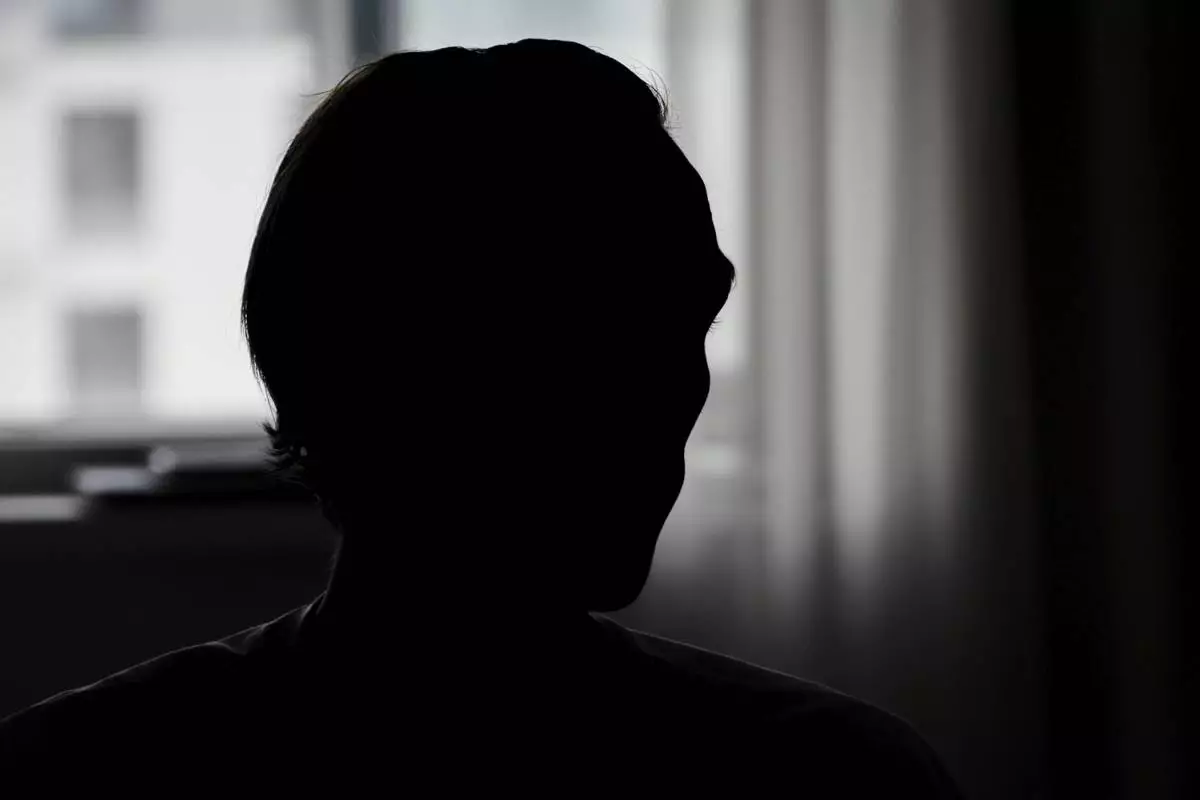
A Russian officer who goes by the nickname Sportsmaster speaks with reporters at his apartment in Astana, Kazakhstan, in late 2023. He faces criminal charges in Russia for refusing to go to war in Ukraine. "I immediately decided that I would not support it in any way, not even lift my little finger to support what had begun," he said. "I understood that this was a point of no return that would change the lives of the entire country, including mine." (AP Photo)
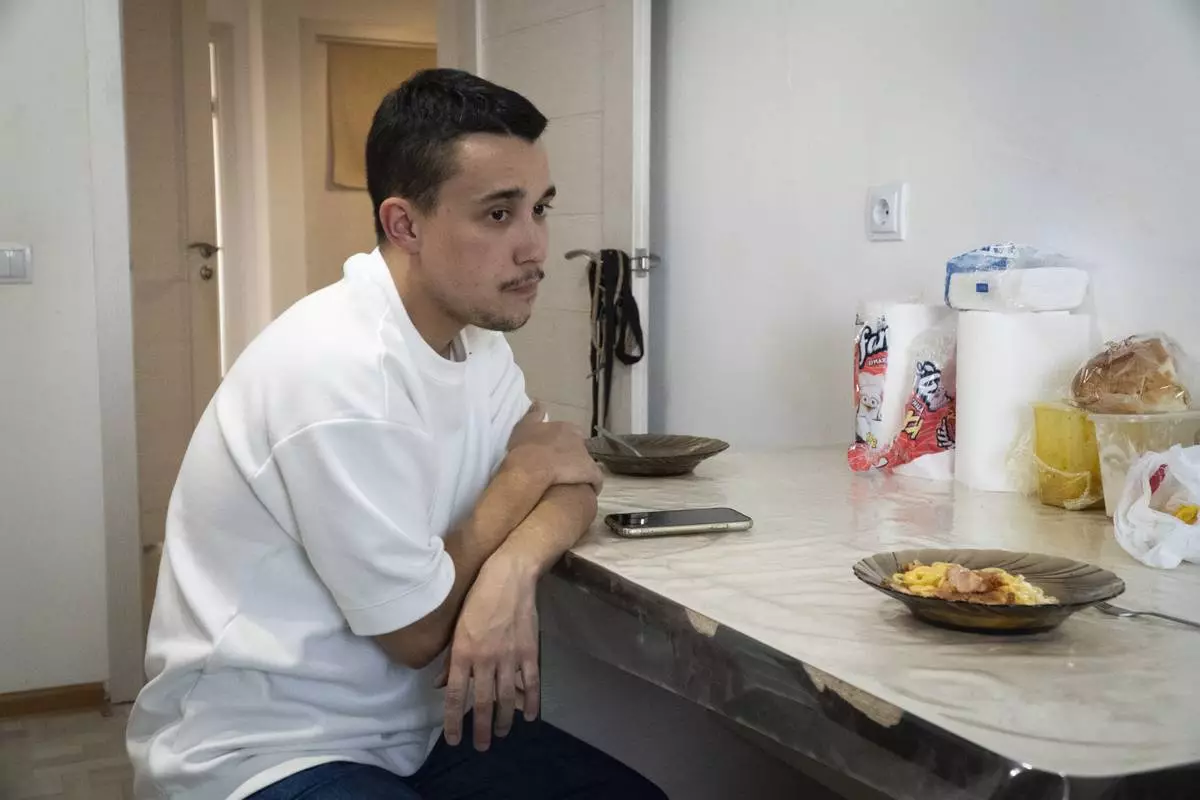
Farhad Ziganshin, a Russian officer who deserted in 2022, sits at a table after lunch at his temporary apartment in Astana, Kazakhstan, in late 2023. "I realized that I didn't want to serve in this kind of Russian army that destroys cities, kills civilians, and forcibly appropriates foreign land and territory," he said. (AP Photo)
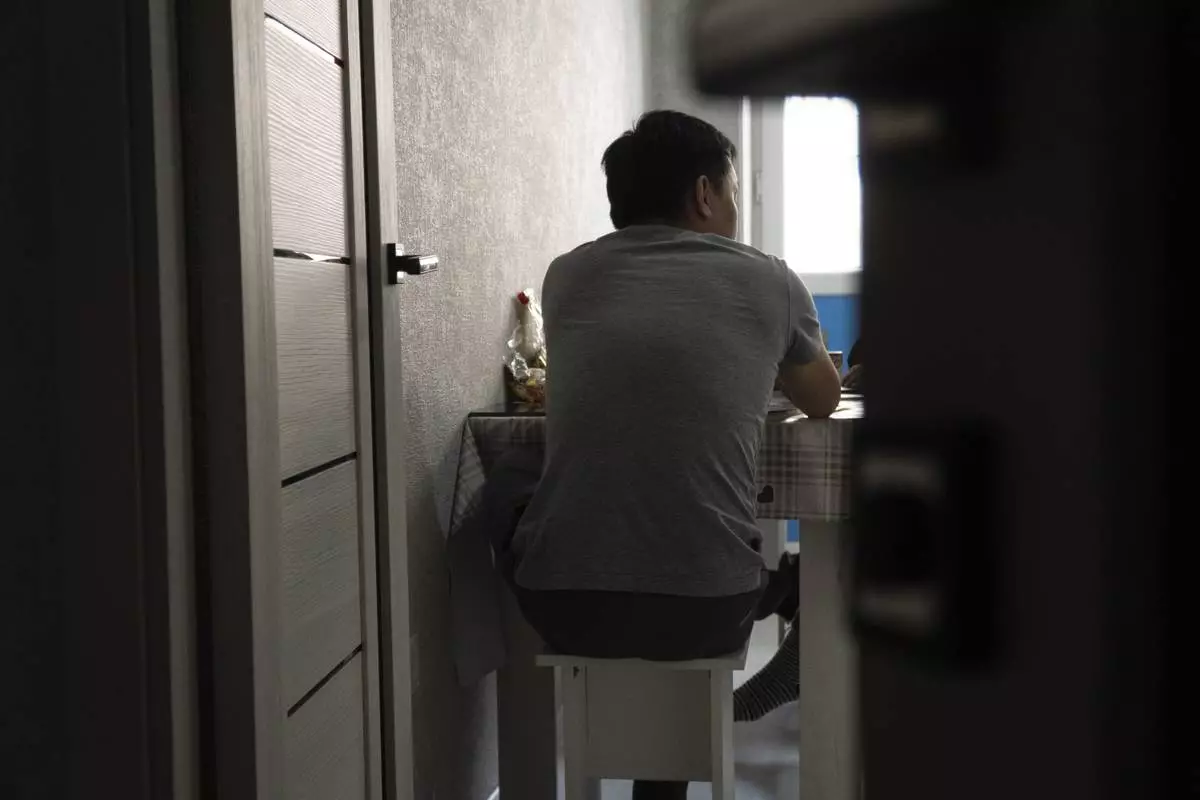
A Russian soldier who goes by the nickname Sparrow sits at his kitchen table in his apartment in Astana, Kazakhstan, in late 2023. After being forcibly conscripted, he ran away from his barracks because he didn't want to kill anyone. "I don't want anything in life. I have no interest in my own affairs," he said. "I just sit all day on the Internet, on YouTube, and read news, news, news of what's going on in Ukraine, and that's it." (AP Photo)
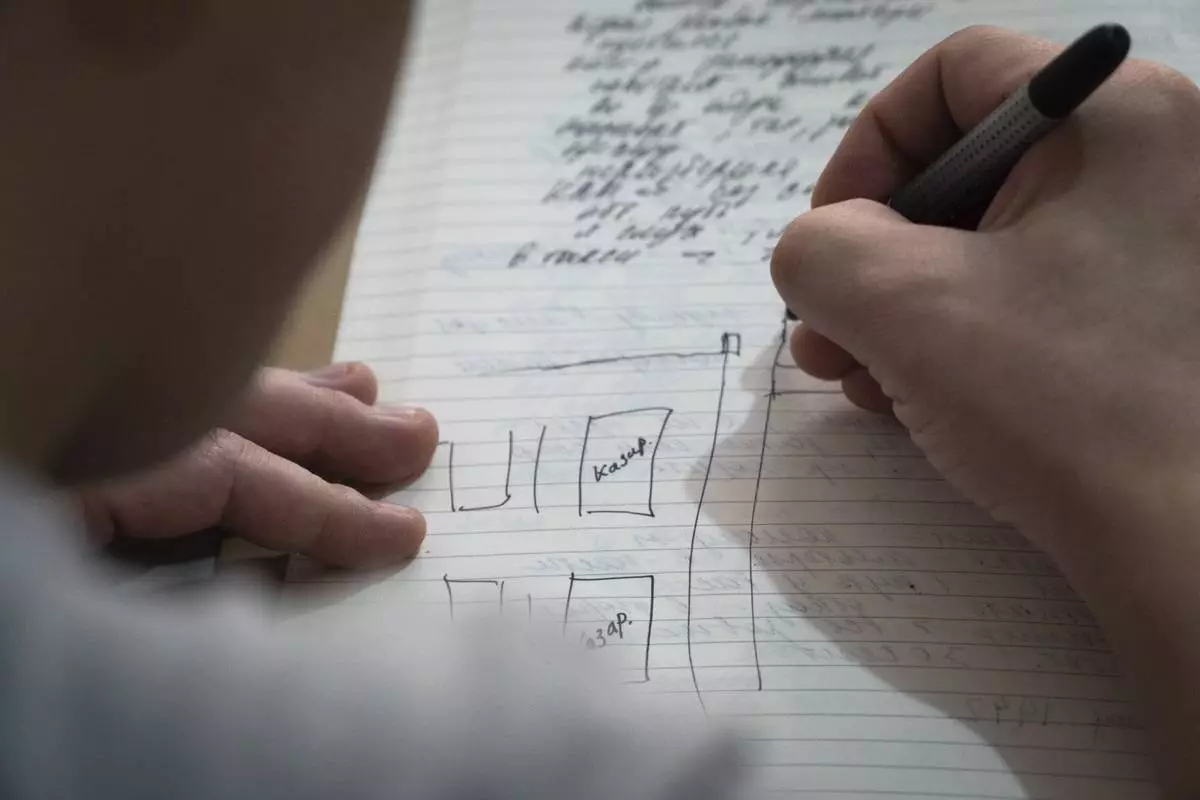
A Russian soldier in Astana, Kazakhstan who goes by the nickname Sparrow sketches the route he took to escape his military barracks in Russia in 2022, at his apartment in Astana, Kazakhstan, in late 2023. After being forcibly conscripted, he deserted because he didn't want to kill anyone. "I did the right thing," he said. "I'd rather sit here and suffer and look for something than go there and kill a human being because of some unclear war, which is 100 percent Russia's fault." (AP Photo)
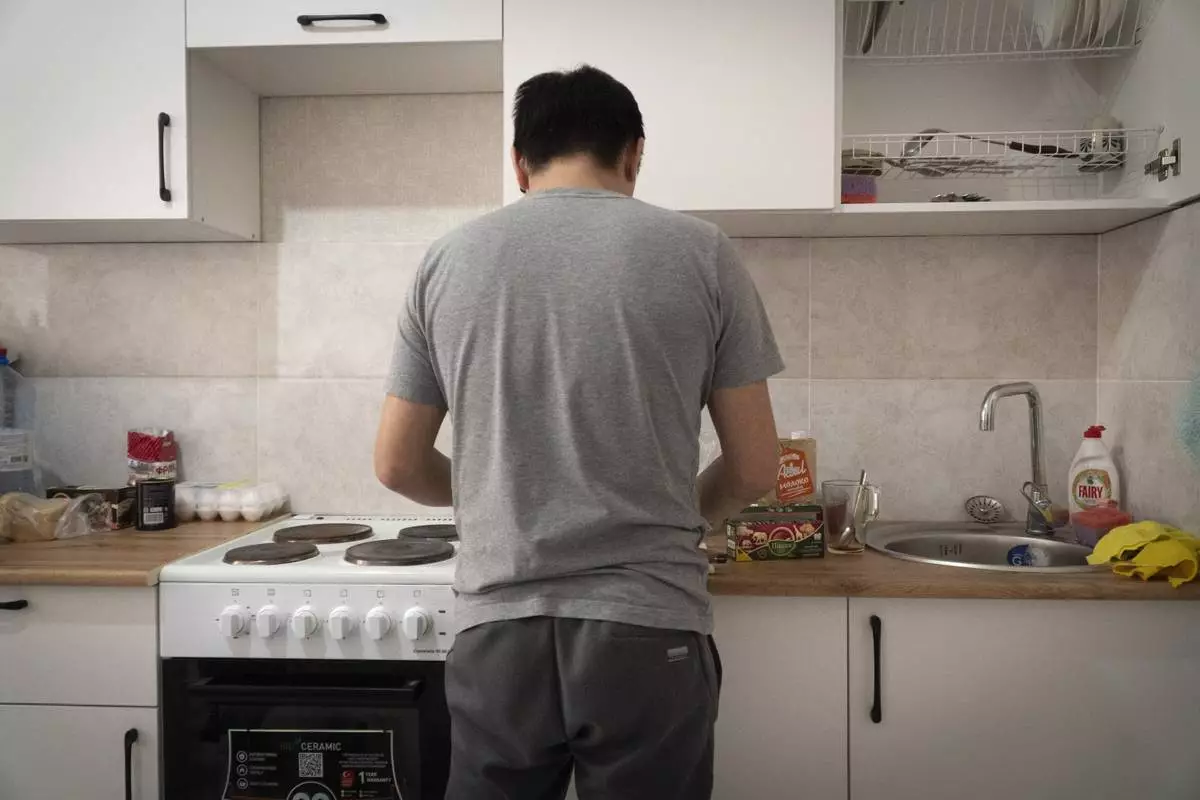
A Russian soldier who goes by the nickname Sparrow prepares tea at his apartment in Astana, Kazakhstan, in late 2023. After being forcibly conscripted, he ran away from his barracks because he didn't want to kill anyone. Now he faces criminal charges in Russia. "I don't want anything in life. I have no interest in my own affairs," he said. "I just sit all day on the Internet, on YouTube, and read news, news, news of what's going on in Ukraine, and that's it." (AP Photo)

A Russian soldier who goes by the nickname Sparrow speaks with reporters at his apartment in Astana, Kazakhstan, in late 2023. After being forcibly conscripted, he ran away from his barracks because he didn't want to kill anyone. Now he faces criminal charges in Russia. "I did the right thing," he said. "I'd rather sit here and suffer and look for something than go there and kill a human being because of some unclear war, which is 100 percent Russia's fault." (AP Photo)
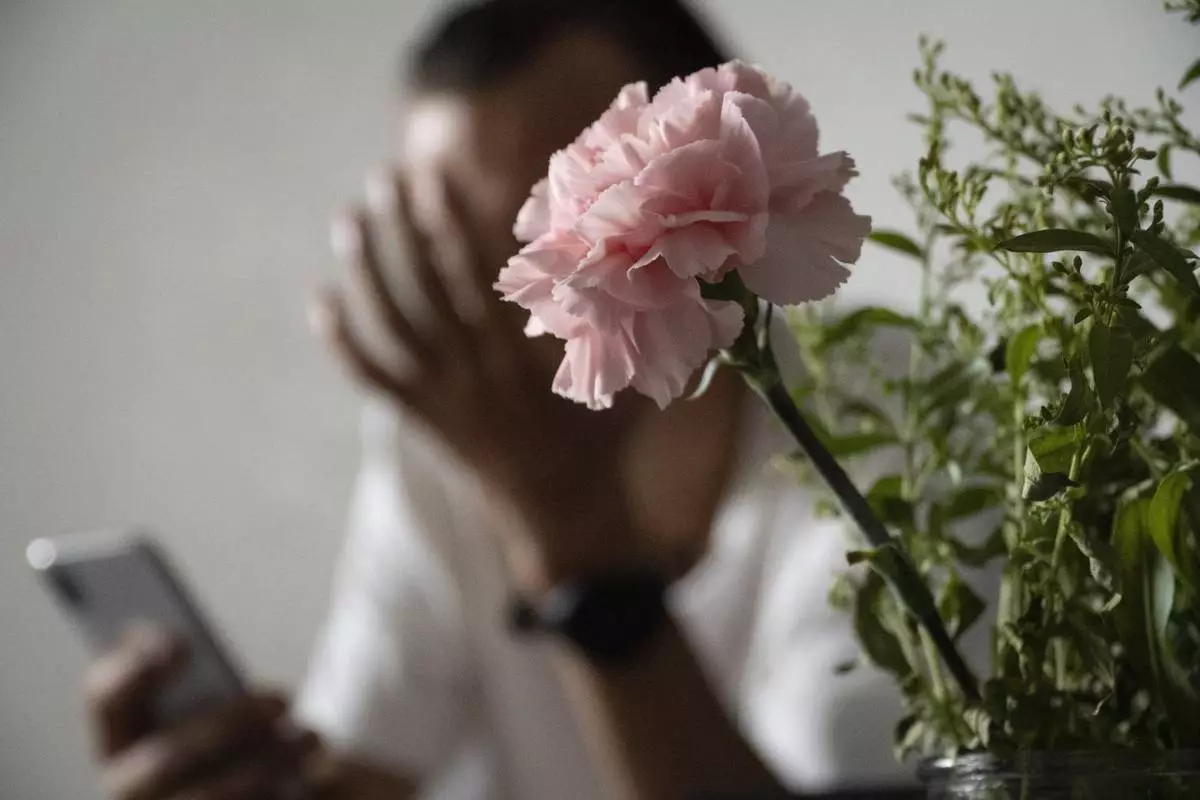
A Russian officer who goes by the nickname Sportsmaster speaks during an interview at his apartment in Astana, Kazakhstan, in late 2023. He faces criminal charges in Russia for refusing to go to war in Ukraine. "I immediately decided that I would not support it in any way, not even lift my little finger to support what had begun," he said. "I understood that this was a point of no return that would change the lives of the entire country, including mine." (AP Photo)
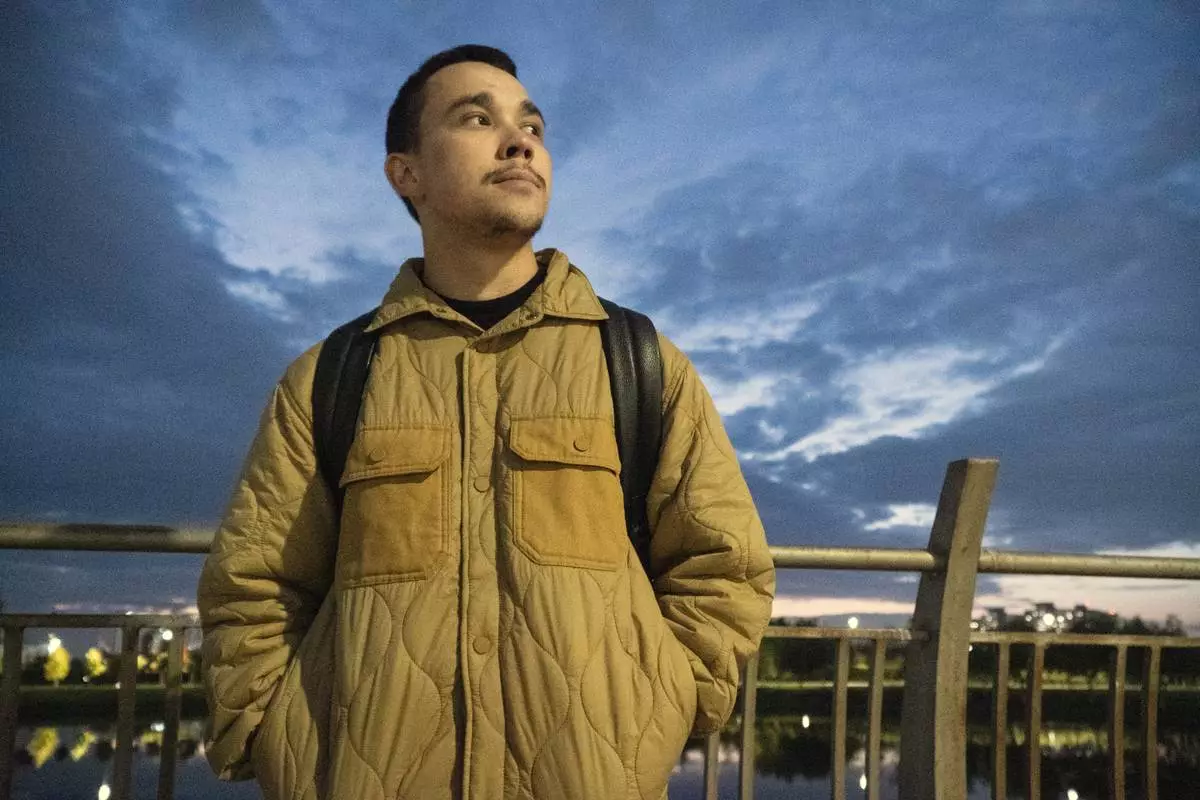
Farhad Ziganshin, a Russian officer who deserted in 2022, takes a walk after work in Astana, Kazakhstan, in late 2023. He dreams of starting a family but can't afford to take a woman out to the movies. "I can't fall in love with someone and have someone fall in love with me," he said. "So I just walk around and sing songs." (AP Photo)
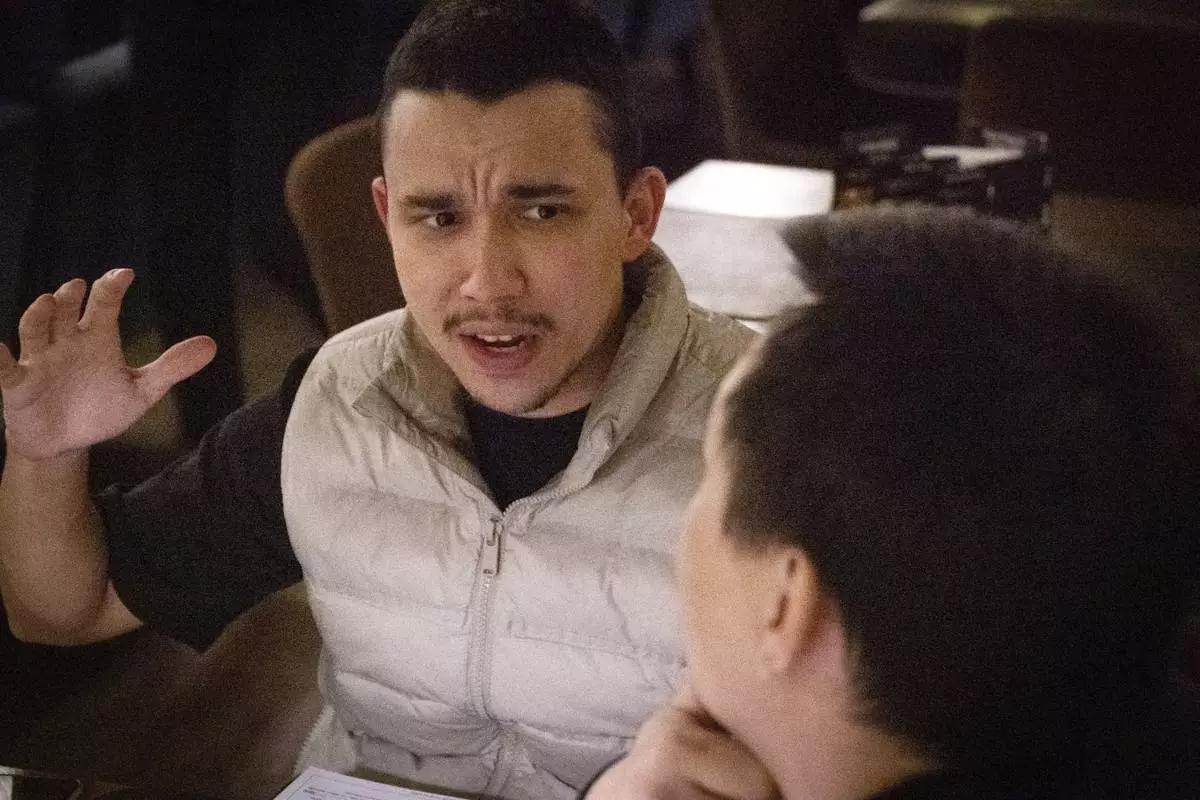
Farhad Ziganshin, a Russian officer who deserted in 2022, speaks during an interview in Astana, Kazakhstan, in late 2023. He was detained for three days by Kazakh authorities when he tried to board a flight to Armenia. "It's not safe to stay in Kazakhstan," he said. (AP Photo)
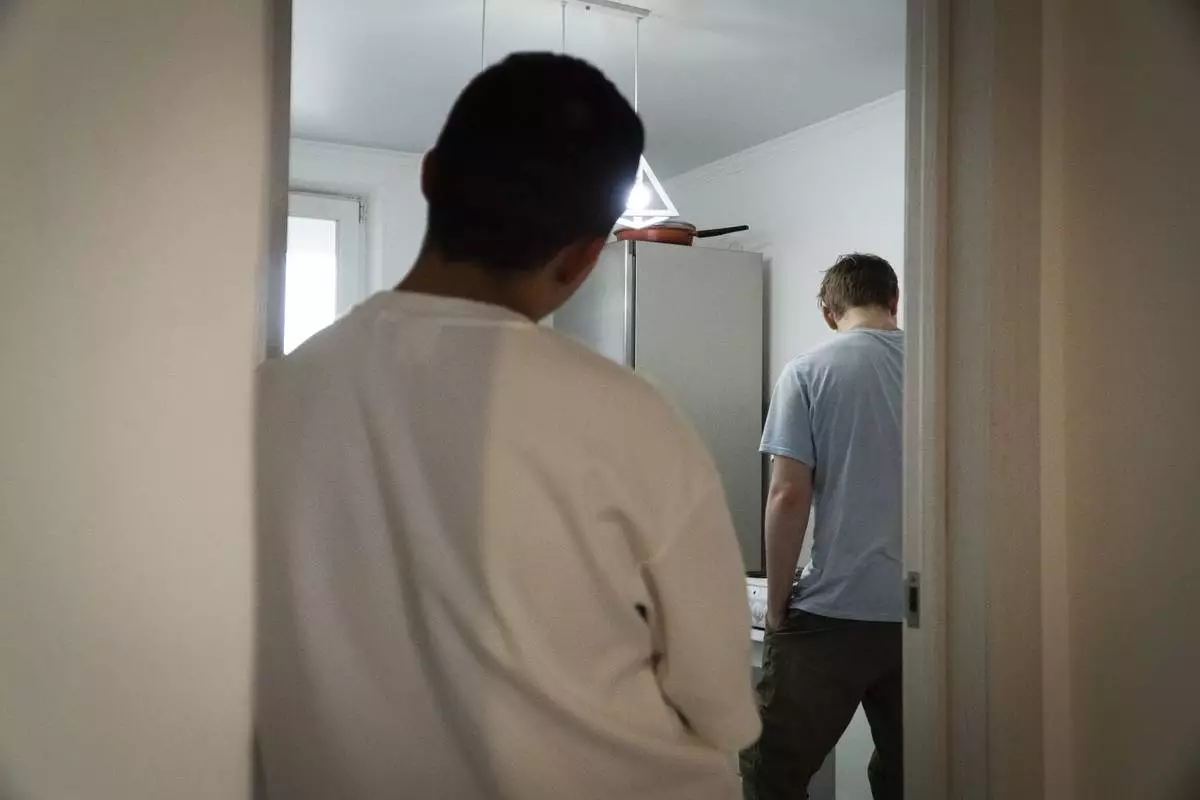
Farhad Ziganshin, a Russian officer who deserted in 2022, stands at the door of his shared room in a temporary apartment in Astana, Kazakhstan, in late 2023. "Here I am living sleeping on coats, eating I don't know what. And without any money in my pocket. It's very depressing," he said. (AP Photo)
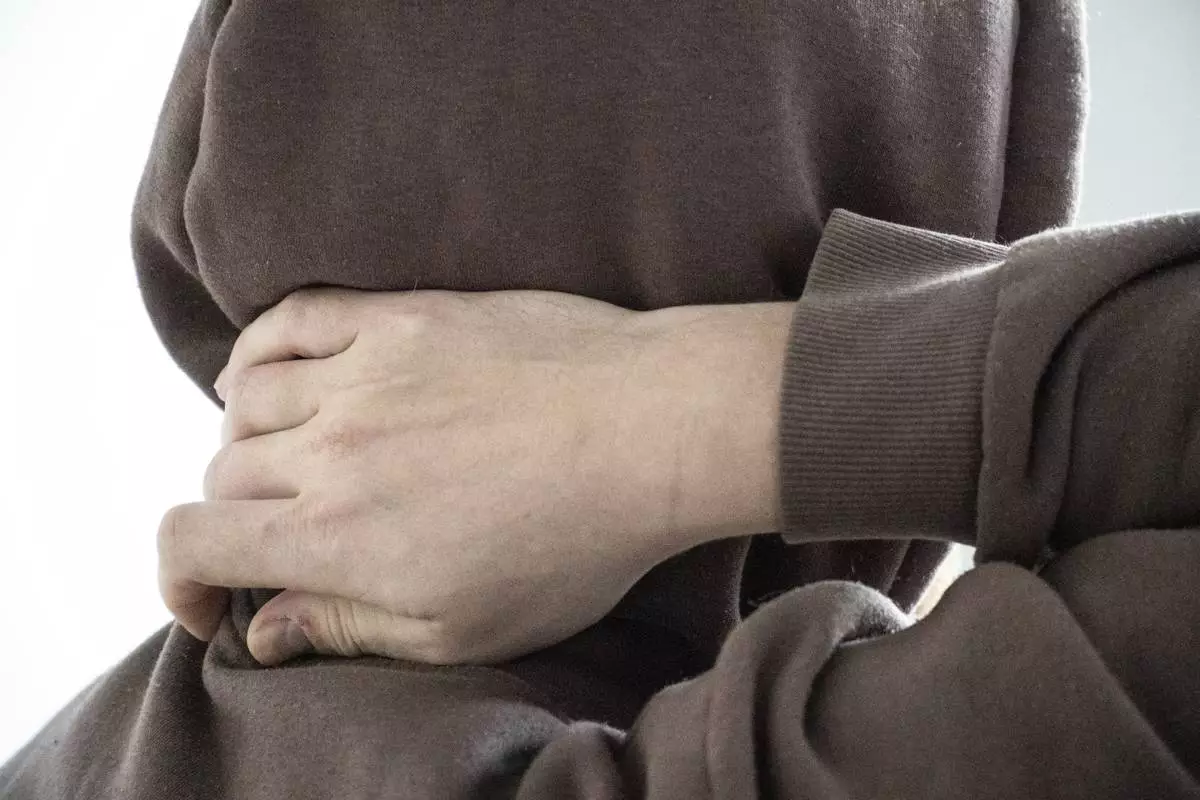
A Russian officer who goes by Yevgeny speaks during an interview at his apartment in Astana, Kazakhstan, in late 2023. He had a friend shoot him in the leg so he could get off the frontline in Ukraine. "There is no mechanism for Russians who do not want to fight, deserters, to get to a safe place," he said. (AP Photo)
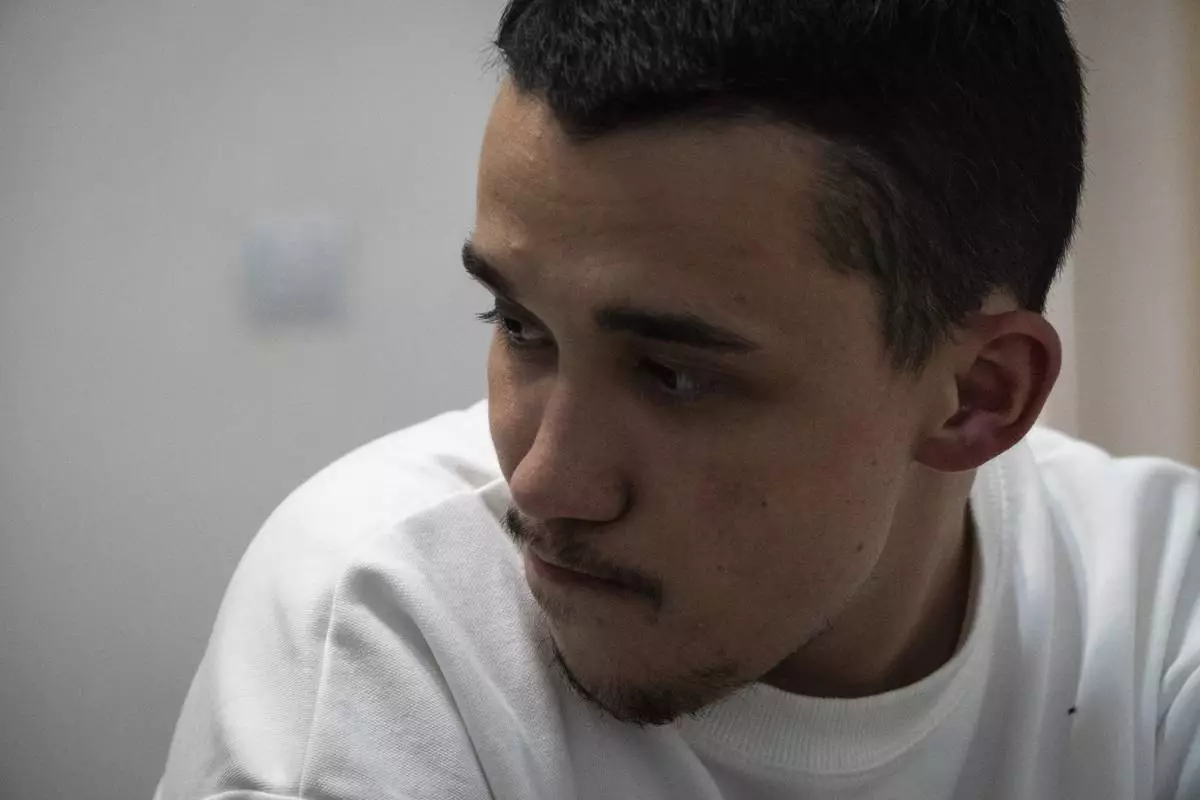
Farhad Ziganshin, a Russian officer who deserted in 2022, pauses during an interview in Astana, Kazakhstan, in late 2023. He was detained for three days by Kazakh authorities when he tried to board a flight to Armenia. "It's not safe to stay in Kazakhstan," he said. (AP Photo)
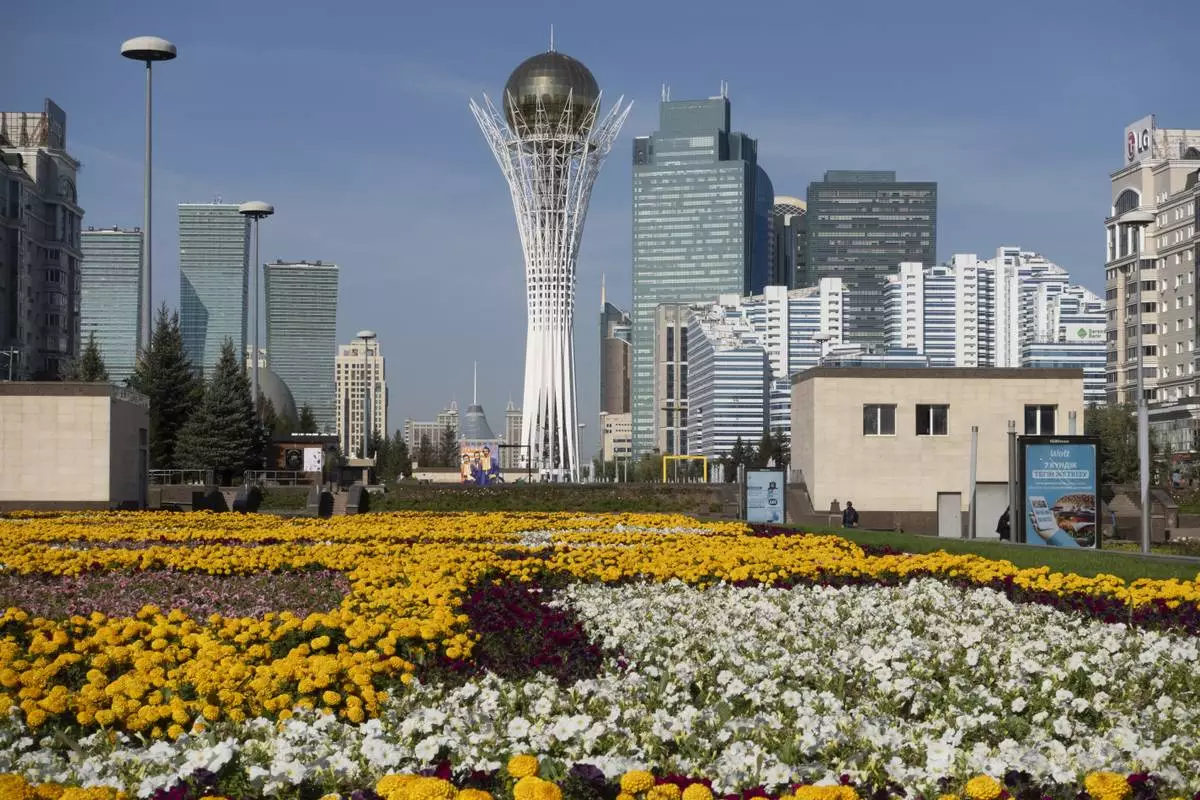
This late 2023 photo shows downtown Astana, Kazakhstan, where some Russian soldiers who deserted the war in Ukraine live in hiding while they apply for asylum. Overall asylum claims from Russian citizens to the U.S., France and Germany have surged since Russia's full-scale invasion, but few are winning protection. Policymakers remain divided over whether to consider Russians in exile as potential assets or risks to national security. (AP Photo)
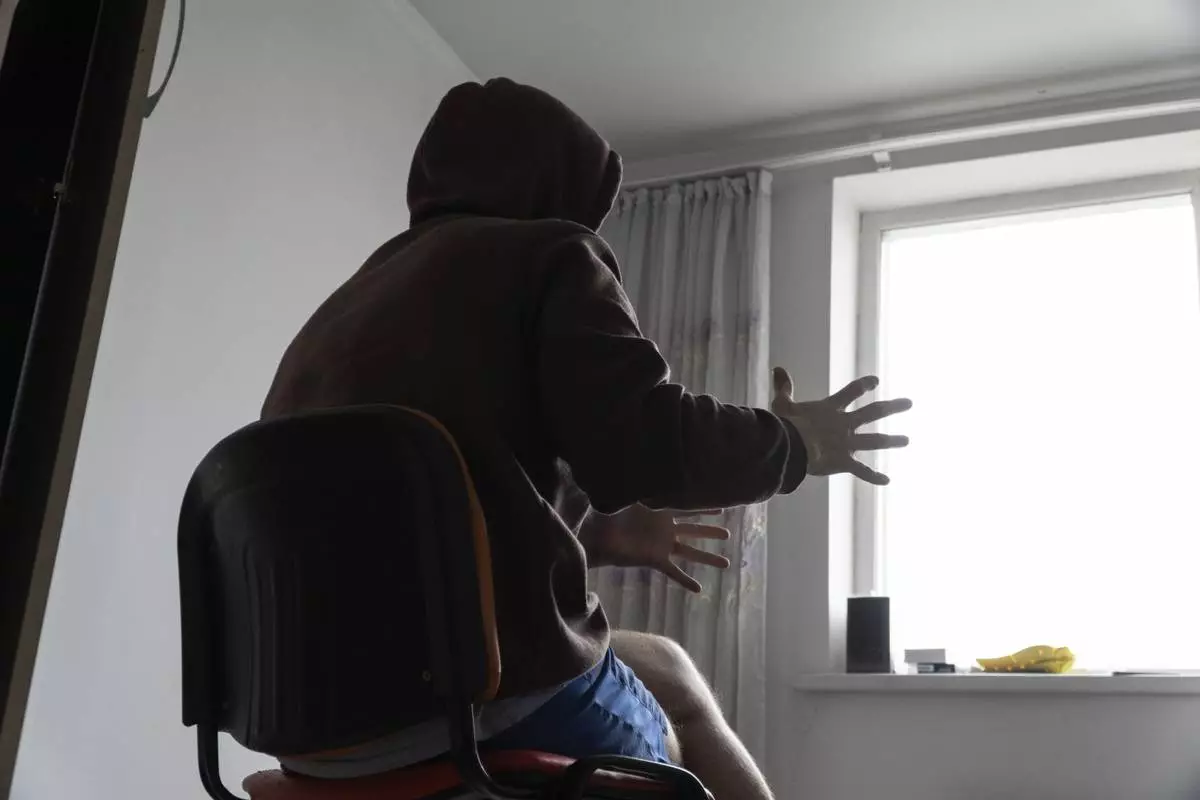
A Russian officer who goes by Yevgeny speaks during an interview at his apartment in Astana, Kazakhstan, in late 2023. He had a friend shoot him in the leg so he could get out off the frontline in Ukraine. "Many of my friends have died. And these were really good guys who didn't want to fight," he said. "But there was no way out for them." (AP Photo)
